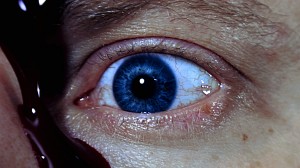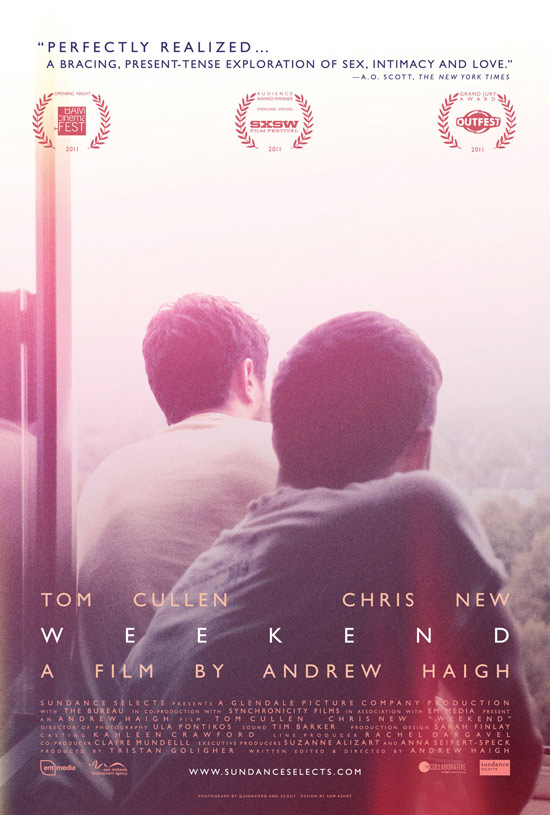 Recap: This series chronicles my wide-eyed and crushingly insecure processes that pulled back the curtain on my ideas about filmmaking – revealing what it really takes to write and direct my movie, Recess. Occasionally I gain productive insights that plant me on less insecure ground. Others I still talk to my therapist about. Perhaps the most important insight I’ve kept – from teething as a writer – the idea that creating detailed, well-drawn characters with original voices can make even a script about a haunted doorknob compelling. I realize there may be infinite approaches more resolute but, for me, the haunted doorknob concept puts character development into perspective.
Recap: This series chronicles my wide-eyed and crushingly insecure processes that pulled back the curtain on my ideas about filmmaking – revealing what it really takes to write and direct my movie, Recess. Occasionally I gain productive insights that plant me on less insecure ground. Others I still talk to my therapist about. Perhaps the most important insight I’ve kept – from teething as a writer – the idea that creating detailed, well-drawn characters with original voices can make even a script about a haunted doorknob compelling. I realize there may be infinite approaches more resolute but, for me, the haunted doorknob concept puts character development into perspective.
Tag: First Features
By Paolo Benetazzo
Push The Boundaries of Your Creativity: How I Made the Film Study
Filmmaking is my day-long obsession, joy and torment
When you can’t see the line between fiction and reality, filmmaking becomes your lifestyle.
I was a psychology student when I came up with the concept behind my feature film directorial debut Study. During my final year at university I was involved in a number of film projects, including short films and documentaries. I didn’t have full artistic control. I had to compromise my vision for the sake of the team and that was the only way to get it done.

When you don’t want to share your vision with others I think you’re ready to make your full-length film, no matter what your budget is. I would rather make a low budget film instead of collecting short films or waiting for the great opportunity that might never come. It’s going to be risky, painful and insane but that’s how real indie films are made.
I’m a self‐taught filmmaker, I’ve never attended a film school. Watching films along with real life experience represents the film school par excellence in my opinion. Films are the greatest teachers of all; they are an endless source of learning.
The Open Screenplay
Fascinated by the study of psychology and its impact on modern life, I decided to explore my studies in a feature film. Once I graduated in Psychology, I moved to Ireland where I started writing the script in English.
A week ago, I asked this question on Twitter, feeling that it would be good advice for everyone to have.
I started things out by sharing that I thought everyone would be professional and want to get along.
My first production was called TIGER WARSAW. I was 23 years old I believe. I found the script, developed it, did all the initial budgeting & scheduling, cast it, did the cast deals, hired the key crew, did those deals, designed some of the shot lists, over saw the production, and got credited as the “Assistant To The Producer”. There was very little trust or good behavior on the show, but there was a fair amount of drug abuse. Lots of threats of different sorts. Many separate agendas. When it was done I quit the business to become a drug counselor (but didn’t get very far with that…).The mistakes I and others made, including false assumptions, definitely informed me going forward.
I suspected I would get more response from the Twittersphere than I did. But what I got was good. Here are 8 responses. Next time I will remember the #hashtag…
@TedHope Using whatever music I wanted in rough cut and then falling in love with it before truly grasping that it was never gonna happen.
Launched this year by the Biennale di Venezia in partnership with Gucci, the Biennale College – Cinema is an initiative to support teams of directors and producer to make their first audio-visual work. A community of selected filmmakers from around the world will work alongside an invited team of international experts and tutors to explore the aesthetics of micro-budget filmmaking and the new integrated models of production, which engage with an audience from the outset.
After a first 10-day workshop in Venice for 15 selected projects in January 2013, up to 3 teams will be invited to a second 15-day workshop between February and March and supported with 150.000 Euros in order to produce and screen the projects at the 2013 Venice International Film Festival. The Call for Applications is open from the 30th of August 2012 to the 22nd of October 2012 only to teams of directors at their first or second feature and producers with variable degrees of expertise who must have produced at least 3 short films distributed and/or presented at Festivals.
For more information go here, or email college-cinema@labiennale.org
This past Wednesday I screened Andrew Haigh’s WEEKEND for my HopeForFilm/Goldcrest Screening Series. It is a truly romantic film. It may be a gay love story, but in it’s tale of a one night stand that could become something more, Haigh’s has tapped into a longing and hope that I never feel in any corporate filmmaking and is entirely universal. It makes me wonder if when creators are forced to think first about the market, if their work will be deprived of love and romance.

When I select films for my screening series, I write a letter to everyone on my invite list trying to explain why I selected the film. This is that letter and why I think you should go see WEEKEND this very weekend.
Dear film fans,
What is romance really? Where does life differ from what the movies offer us? Can romance ever be depicted honestly on screen? If the screenwriter or director’s hand is too obvious we see the mechanics of the film and it can’t be trusted. Hollywood has relied for a century on the beauty and notoriety of its stars for audiences to make the leap. In the indie world, we rely often on the dialogue, the ideas, the wit to seduce us along with the characters. Sometimes I think it never is honest, but then sometimes a movie comes along and convinces me otherwise.
And what about sex? You can’t really have honest romance in a contemporary film without also having sex portrayed on screen; it is part of the equation after all. How can sex be positioned in an honest way so that we don’t feel taken out of the fiction we are following, and then start wondering what the filmmakers are really trying to say with the way they are portraying it. Representation and signification take away much of the immediacy, and thus the pleasure. I have given up hope that sex and cinema can truthfully collaborate more than once, but fortunately a film occasionally graces us and that proves it can be done.
At the end of the day, what I am talking about is the challenge of portraying emotional truth through physical action and the challenges of story construction on screen. And let me tell you, I know firsthand: it ain’t easy.
It is so refreshing when a filmmaker seems to come out of nowhere, deprived of funding, working truly out of the system and off the grid, challenging themselves, the audience, even the entire system as it is currently structured and delivers something, that despite all the limits and challenges they faced, soars beyond what the corporate or government-supported industry is able to produce. Andrew Haigh has done that with his film WEEKEND. Don’t be fooled, he may make it look easy, he may make it look simple, but this is not that at all. It is a work where everyone is working at their peak, sharing the vision, reaching and striving — and hitting the mark.
Folks often say that a great deal of directing is casting (I don’t fully agree with that) but clearly Andrew has benefited by his choices. The two leads are as natural in their roles as Haigh is in how he uses the camera. All throughout the movie,I forever believed I was watching life as it is led . I don’t think this phenomenon is due just to the high level of acting or the precise casting. It comes from trust, and a three way trust at that: the director with his actors, the actors with their director, and the actors with each other. Whether it is a lack of judgement, or a clear-hearted love, an openness or an understanding, there is an incredible honesty happening between all up on the screen. When one recognizes it, one also recognizes how incredibly rare it is.
WEEKEND is the story of a one night stand that might grow into something more. It happens to also be a gay story, and one that doesn’t shy away or try to play it straight. In doing so, not being shy about the people, the world, and what they do, Haigh aslo captures the depth of its story in a way everyone should be able to relate to. If life is often the challenge of reducing the space between who you want to be and who you are right now — the gulf often between thought and expression — then in choosing to have one character still not fully accepting who he really is, Haigh has tapped into the universality of the specific world he has chosen.
WEEKEND is nothing less than both challenging and refreshing cinema, and it is also a whole lot more.


 Hammer to Nail
Hammer to Nail 